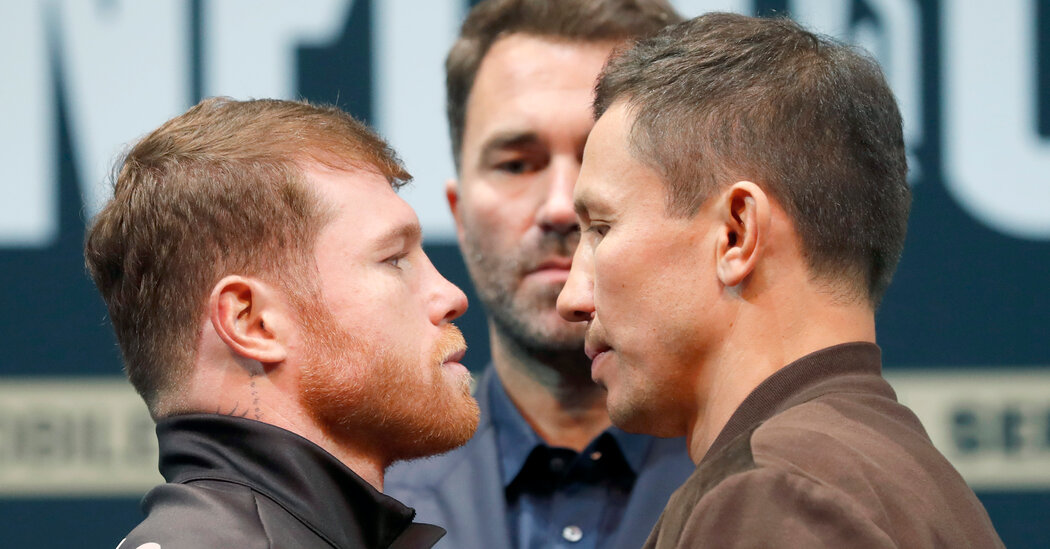
“He lost to Bivol. He didn’t see that coming,” said Banks, a Detroit native and retired heavyweight who has trained Golovkin since 2019. “This fight was a hell of an ace in the hole for him.”
Golovkin’s camp contends that Álvarez delayed this rematch intentionally, outclassing opponents like Plant and Billy Joe Saunders while waiting for Golovkin, a forward-moving power puncher who has scored knockouts in three of his last four bouts, to age out of his prime. Now 40, Golovkin (42-1-1, 37 knockouts) concedes that he has had to adjust his workouts to account for his age. His team now includes a nutritionist and a massage therapist who help him recover from the strain of daily training.
But Golovkin, who grew up in Kazakhstan and trains in Big Bear Lake, Calif., maintains that he’s still young enough to trouble Álvarez.
“I will never take a step back,” Golovkin said in an interview, through a Russian language translator. “Even if I’m 50 years old, if I’m challenged by Canelo, I would take the challenge. There are no other opponents as interesting. DAZN knows that. Canelo knows that. Sooner or later, this fight was going to take place, no matter what.”
And for DAZN, the bout recalls the proverb about the best time to plant a tree.
The best time would have been in 2019, the year after the streaming service signed a $365 million deal with Golden Boy Promotions, which promoted Álvarez then. DAZN had already signed an eight-year, $1 billion deal with Matchroom Boxing, a promoter based in England. The Golden Boy contract was supposed to deliver 11 Álvarez bouts, one of which, ideally, would have been a matchup with Golovkin. DAZN hoped the third bout, along with Álvarez’s long-term presence, would help drive subscriptions to their service and, eventually, make pay-per-view boxing events obsolete.